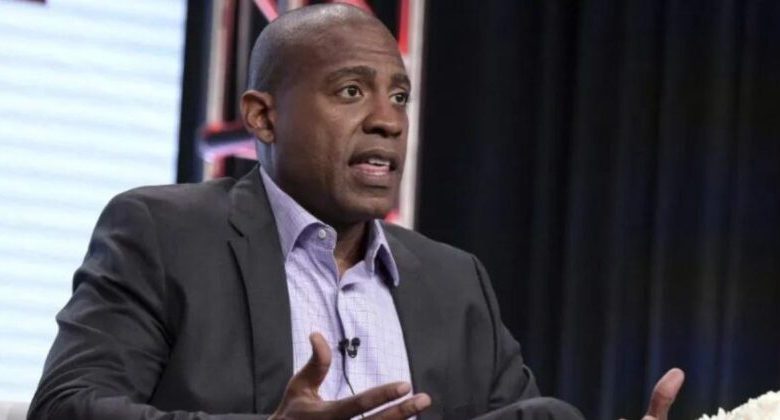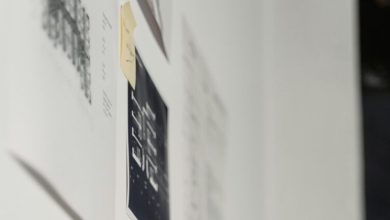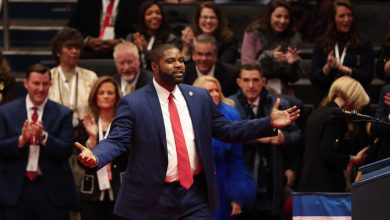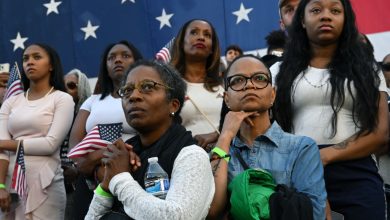Co-Founder Rao Flipped To Become Star Witness

For nearly a decade, Ozy Media projected an image of new-media success, boasting big-name interviews, an Emmy-winning TV show, a popular music and ideas festival, and impressive numbers to show prospective investors—until it imploded in 2021 amid doubts about its audience size, viability, and basic integrity.
Those doubts are now at the center of a federal criminal trial. Founder Carlos Watson and Ozy Media are facing charges of conspiracy to commit fraud.
Co-founder Samir Rao admitted to impersonating a YouTube executive to talk up the company to prospective investors, AP reported.
But Watson’s and Ozy’s lawyers blame any misrepresentations on Rao, who has pleaded guilty to conspiracy to commit fraud and identity theft. And now he has become a prosecution witness.
The defense also claims that prosecutors are singling out Watson, a Black founder in a tech world where African-American executives have been disproportionately few.
“I am not now and never have been a ‘con man,’” Watson stated when indicted last year.
Yet Rao, the star witness, testified, “We told so many lies to so many different people.”
“Regrettably,” Rao admitted, “I’ve told many lies in my time at Ozy.”
The company, founded in 2012, aimed to provide a fresh, sophisticated take on politics, culture, and more—billed as “the new and the next”—while amplifying minority and marginalized voices. Watson, a Harvard and Stanford-educated son of two South Florida teachers, recruited Rao after a chance meeting at a Chipotle restaurant in Silicon Valley.
Ozy debuted with a website and newsletters. Former President Bill Clinton was one of its first interviewees. The company expanded into podcasts, events, and TV shows, winning a 2020 Emmy for the Watson-hosted “Black Women OWN the Conversation,” on the Oprah Winfrey Network. The annual Ozy Fest in New York’s Central Park drew big names ranging from John Legend to a pre-presidency Joe Biden.
But behind the scenes, prosecutors say, Ozy started bleeding money in 2018 and began trying to save itself with lies. The company told a prospective investor it “finished 2017 with approximately $12 million in revenue” but gave its accountants a number under $7 million. Discrepancies reached as much as $53 million versus $11 million for 2020, The New York Times reported.
Meanwhile, Ozy frequently delayed paying vendors and rent, borrowed against future receipts to get pricey cash advances, and struggled to make payroll, testified former finance vice president Janeen Poutre.
The company denies all. “Ozy Media did not defraud its investors or anyone else,” said the company’s lawyer, Shannon Frison.
Watson’s lawyer and Harvard Law School Professor Ronald Sullivan Jr. said his client “believed every number that he gave every investor.” The company blames Rao.
While trying to get Ozy a bank loan in 2020, Rao faked a contract saying that Winfrey’s OWN network had renewed “Black Women OWN The Conversation” for a second season. When the bank wanted information directly from the network, Rao set up a phony email account for a real OWN executive and used it to offer the bank “background on the transaction.”
Rao’s infamous phone call came the next year as Ozy sought an investment from Wall Street giant Goldman Sachs. He falsely claimed YouTube was paying for Watson’s eponymous talk show and downloaded a voice-modifying app to pretend to be a YouTube executive on a call with Goldman Sachs bankers. Rao told jurors that Watson verbally okayed the pretense.
Alphabet Inc. CEO Sundar Pichai also testified at the trial, stating that Google never intended to buy the startup, contradicting Watson’s claims of a multi-million dollar offer. Watson is accused of fabricating acquisition offer from Google. Pichai told the Brooklyn federal court that while Google considered hiring Watson as head of its news programming, involving a $25 million investment in Ozy, there was no discussion of purchasing the company for $600 million. Despite Watson’s alleged claims of a close relationship with Pichai, the Google CEO testified they had only spoken twice, briefly at a conference and during Watson’s job interview, which did not result in employment, Bloomberg reported.
Carlos Watson participates in the PBS TV Association summer press tour, July 29, 2016, in Beverly Hills, Calif. (Richard Shotwell/Invision/AP)




